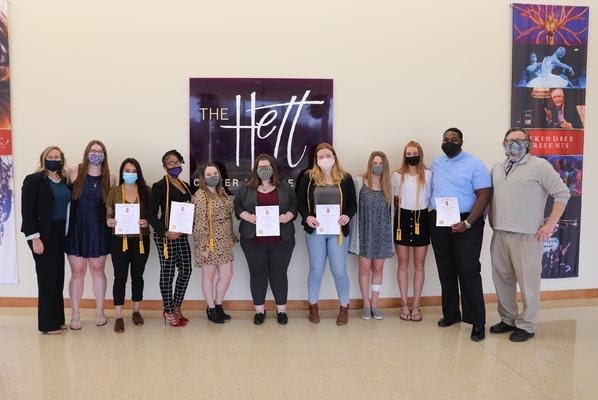
By Emily Lease, contributing writer
Photos from McKendree University and Google
Since grade school, teachers have told us that if we do well in school, it will help us achieve all our dreams. We then get into high school and teachers tell us that if we get good grades, we will get into the National Honor Society (NHS), which will help you to look good on college applications. Then, for some of us, we get to college and we are told again that if we work hard and get into honor societies and pay all of the fees, it will help us even more. But here is the question: does it really help us?
Before I began interviewing some experts, I decided to see what a simple Google search would bring. According to Investopedia.com, the majority of people that do join honor societies while in college only do it to beef up their résumés. Very rarely do people use them for networking. This statement makes sense mainly because, while in high school NHS, that is basically what they told us when they wanted us to join. Being a part of an honor society looks and sounds great on a résumé, especially when you are preparing to go to college. This brings up the main question: what is the point of joining college honor societies?

One of the first people that I decided to interview about the topic was Dr. Sara L. Frank, Ph.D., who is a professor here at McKendree and one of the advisors for Lambda Pi Eta, the national communication honor society. One of the first questions I asked her was if she thought being in an honor society while she was in college helped her get a job. Dr. Frank replied by saying that she does not believe being a part of an honor society helped her get an interview or a specific job, but she did say that being on two of her honor societies’ executive boards taught her valuable skills that she would not have had if she was not a member. The skills she learned from being a part of those organizations did help her résumé look more appealing, which is always a plus. I also asked Dr. Frank if she thought being part of honor societies helped her get into graduate school. She responded by saying that she doesn’t know how much weight being in a college honor society helps your chances of getting into college honor societies, but she did say that she believes that it is almost expected for future graduate students to be in at least one honor society, since many of them have strict membership rules that are focused on academic ability.
Following my interview with Dr. Frank, I interviewed Jennifer Pickerell and Katelynn Shuetz who are the director and assistant director of Career Services here at McKendree. When I interviewed them, they had some very interesting things to say. When I asked Katelynn if being a part of an honor society made you more marketable towards employers, she shared some interesting stories. Before she worked at McKendree, she worked for a company that specifically looked to hire the best people out there. The managers with this specific company liked seeing an honor society on people’s resumes. Katelynn believes that this is due to the rigorous academic rules that honor societies have. Katelynn and Jennifer Pickerell also mentioned that they both believe that being a part of a college honor society has the potential to boost your career, especially if you have a role within the honor society. For example, being President of the honor society will help you stand out. This makes a lot of sense—what they’ve said goes along with what Dr. Frank has said.
Overall, from what I have found, it seems that there is no solid thing that can get someone a career or into graduate school. However, joining an honor society while in college can help open doors for you through networking. It can also introduce you to different life skills that can strengthen your résumé even more. This is a hugely positive thing, especially in highly competitive career fields. So like G.K. Nelson once said, “Successful people are not gifted; they just work hard, then succeed on purpose. It is just up to you if you decide to work hard and join honor societies.”